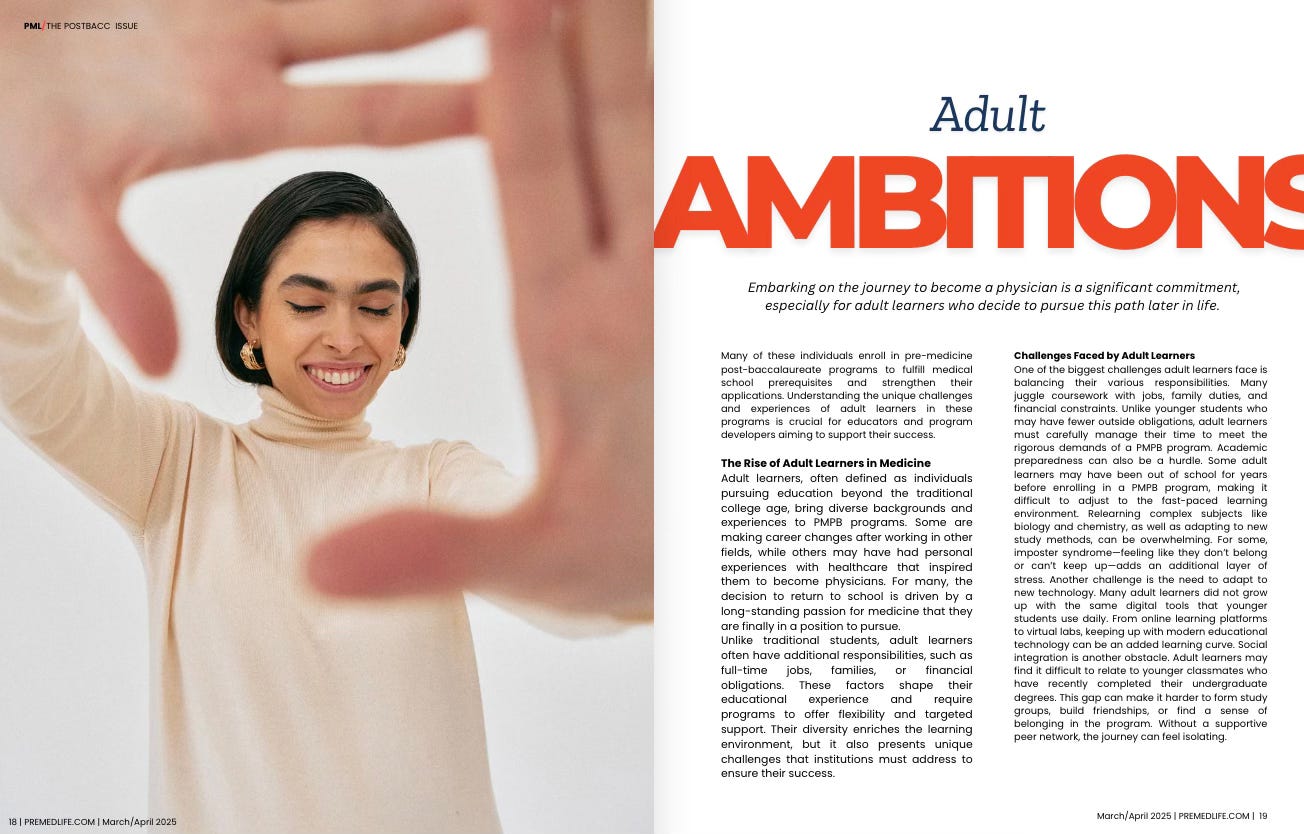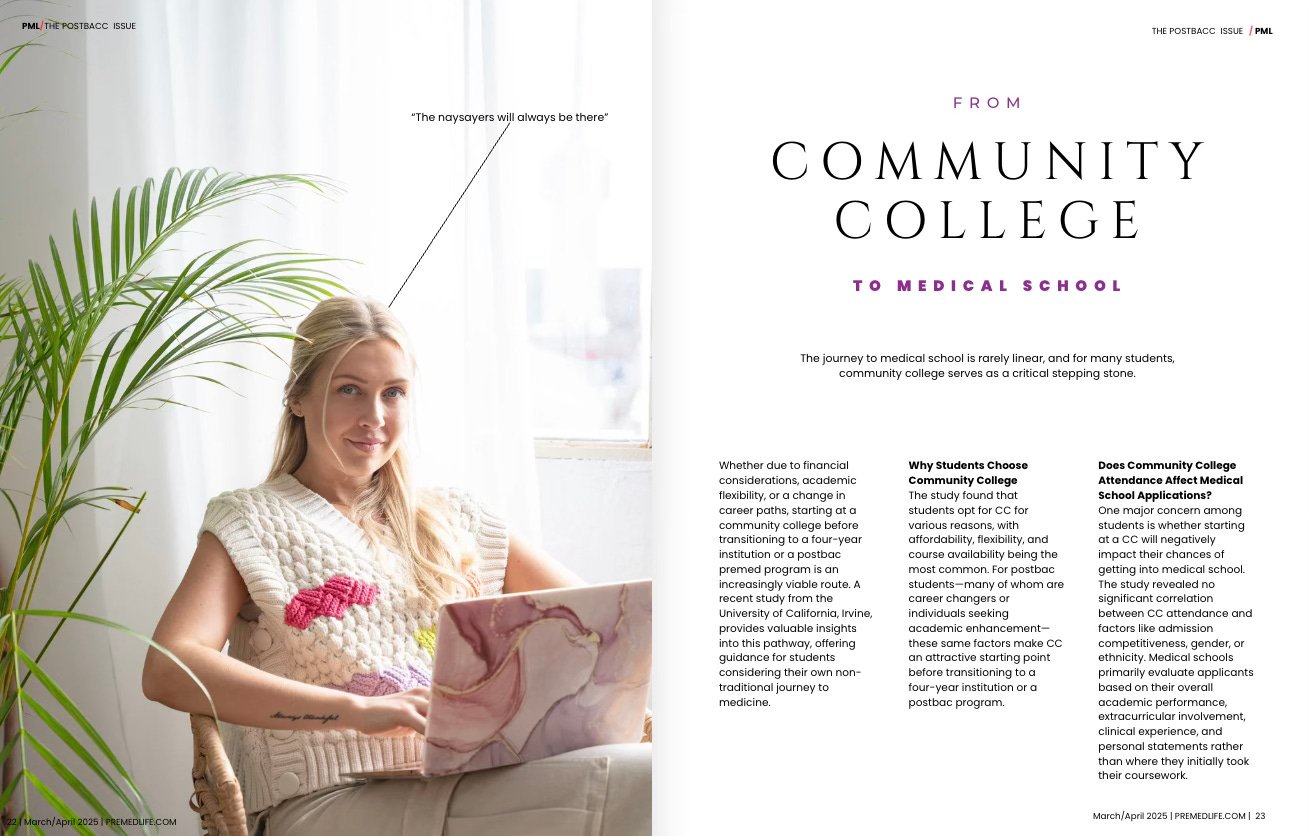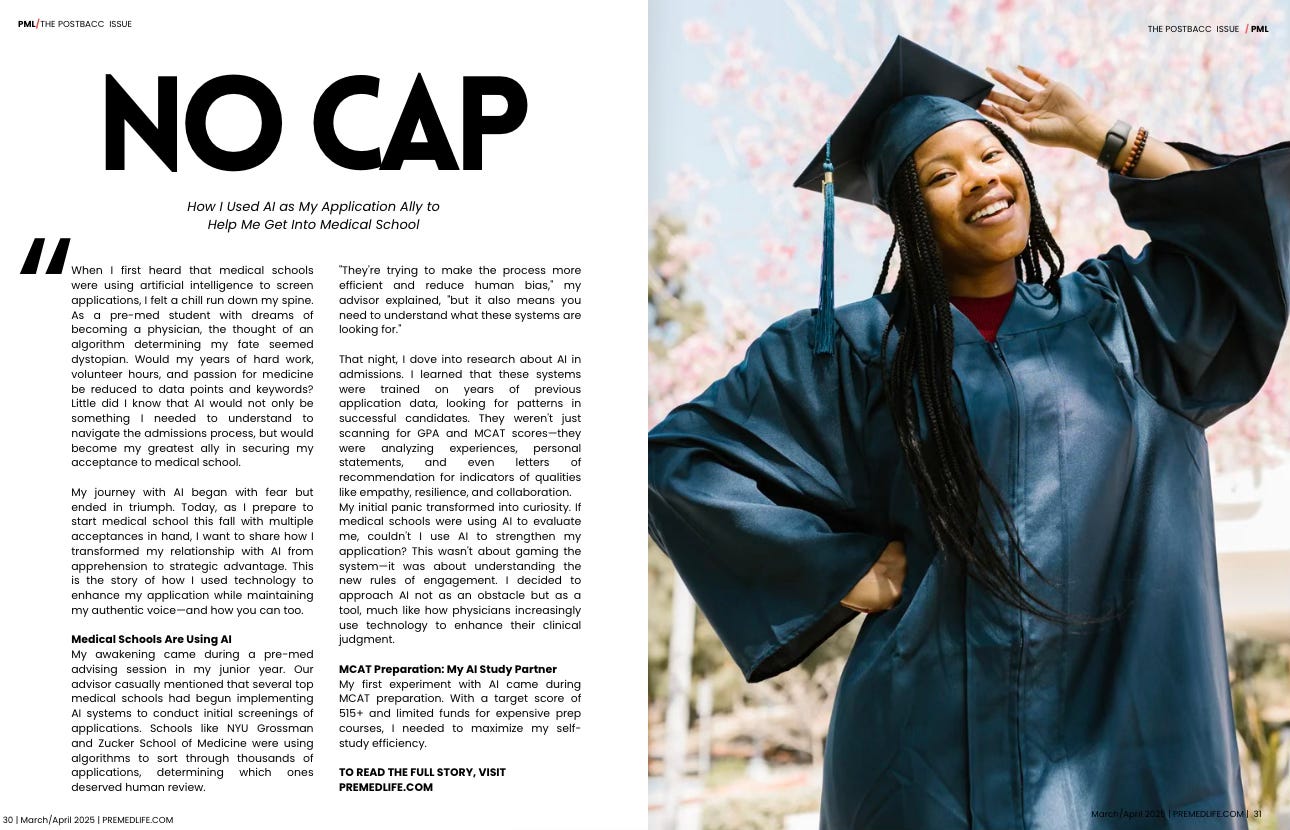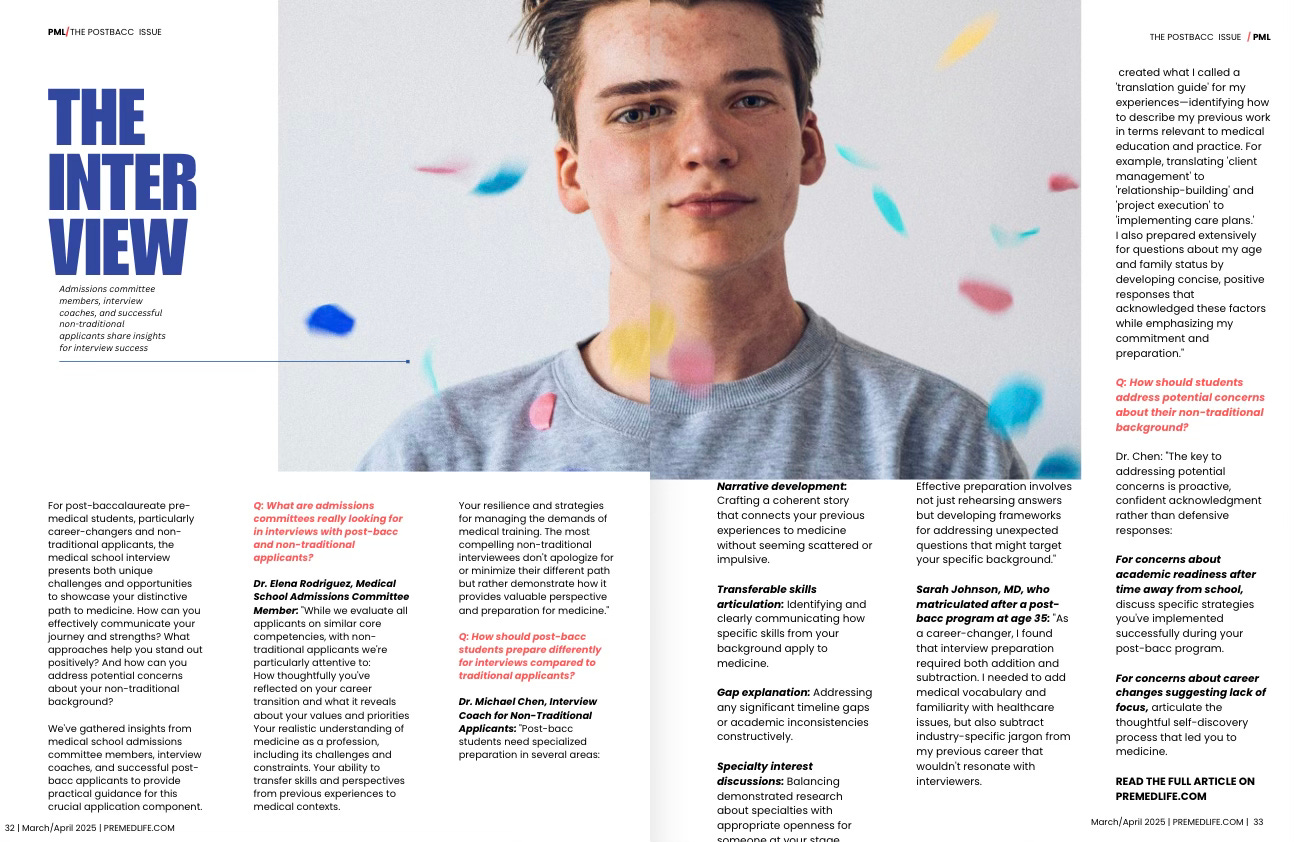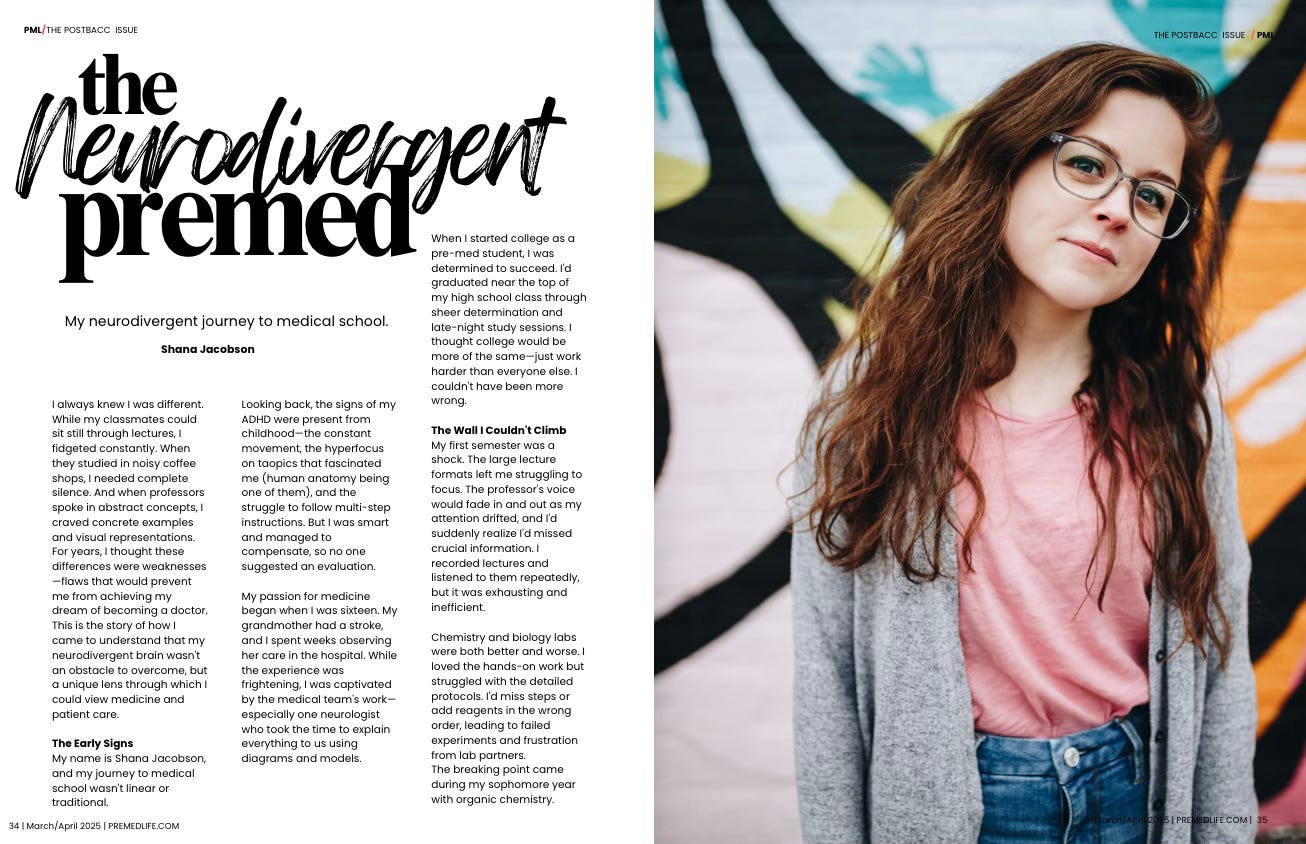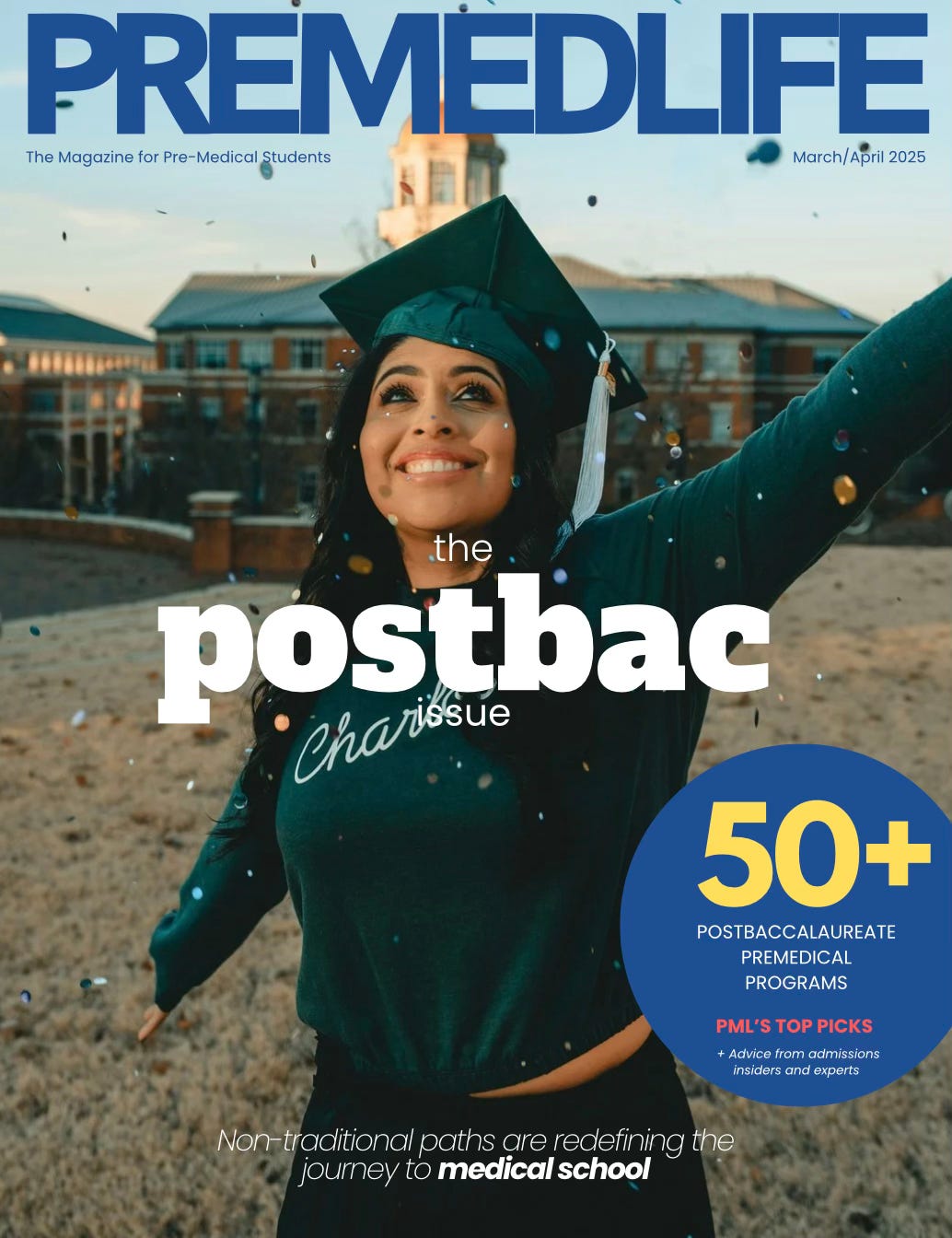PreMedLife's 2025 Post-Baccalaurate Pre-Med Issue
Non-traditional paths are redefining the journey to medical school. This year, we’re highlighting the programs we think you’re really like. From free MCAT prep to tuition-free programs, we’re excited.
In this issue…
Doubt to Doctor: Conquering Imposter Syndrome as a Post-Baccalaureate Premed Candidate
Imposter phenomenon, commonly referred to as imposter syndrome, describes persistent self-doubt and the fear of being exposed as a fraud despite clear evidence of competence and achievement.
Adult Ambitions
Embarking on the journey to become a physician is a significant commitment, especially for adult learners who decide to pursue this path later
in life.
Many of these individuals enroll in pre-medicine post-baccalaureate programs to fulfill medical school prerequisites and strengthen their applications. Understanding the unique challenges and experiences of adult learners in these programs is crucial for educators and program developers aiming to support their success.
From Community College to Medical School
The journey to medical school is rarely linear, and for many students, community college serves as a critical stepping stone.
Whether due to financial considerations, academic flexibility, or a change in career paths, starting at a community college before transitioning to a four-year institution or a postbac premed program is an increasingly viable route. A recent study from the University of California, Irvine, provides valuable insights into this pathway, offering guidance for students considering their own non-traditional journey to medicine.
Becoming a Resilient Doctor
I still remember the day I got back my first general chemistry exam. My hands trembled as I stared at the C- grade that appeared on my laptop screen.
In that moment, my dream of becoming a doctor seemed to slip through my fingers like sand. Four years later, as I prepare to begin medical school this fall, I look back on that moment as the first of many tests, not just of my academic abilities, but of my resilience. The journey to becoming a doctor isn't meant to be easy. If you're reading this as a pre-med student questioning your path, know that you're not alone. The road is designed to challenge you, to push you beyond what you thought possible, and sometimes, to break you down so you can rebuild stronger. Today, I want to share what I've learned about resilience during my pre-med years.
No Cap: How I Used AI as My Application Ally to Help Me Get Into Medical School
When I first heard that medical schools were using artificial intelligence to screen applications, I felt a chill run down my spine. As a pre-med student with dreams of becoming a physician, the thought of an algorithm determining my fate seemed dystopian. Would my years of hard work, volunteer hours, and passion for medicine be reduced to data points and keywords? Little did I know that AI would not only be something I needed to understand to navigate the admissions process, but would become my greatest ally in securing my acceptance to medical school.
The Interview
Admissions committee members, interview coaches, and successful non-traditional applicants share insights for interview success
For post-baccalaureate pre-medical students, particularly career-changers and non-traditional applicants, the medical school interview presents both unique challenges and opportunities to showcase your distinctive path to medicine. How can you effectively communicate your journey and strengths? What approaches help you stand out positively? And how can you address potential concerns about your non-traditional background?
We've gathered insights from medical school admissions committee members, interview coaches, and successful post-bacc applicants to provide practical guidance for this crucial application component.
My name is Shana. I always knew I was different. While my classmates could sit still through lectures, I fidgeted constantly. When they studied in noisy coffee shops, I needed complete silence. And when professors spoke in abstract concepts, I craved concrete examples and visual representations. For years, I thought these differences were weaknesses—flaws that would prevent me from achieving my dream of becoming a doctor. This is the story of how I came to understand that my neurodivergent brain wasn't an obstacle to overcome, but a unique lens through which I could view medicine and patient care.
The 2025 Post-Baccalaureate Pre-Med Issue







